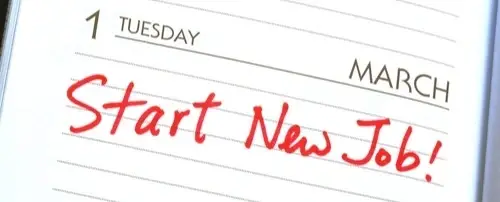The Number 1 Thing You Should Do During Your First 60 Days at a New Job

It’s Throwback Thursday! We’re taking a stroll down memory lane and sharing posts you might have missed. This article originally appeared here.
________________________________________________________________________________
From a reader:
So I got the dream job, I negotiated but what now? I start in two weeks but I’m wondering if I should create a framework of objectives before I start? Maybe a professional development plan personally to make sure I am trained moving forward?
Dear Starting Right,
Everyone wants to start a new job on the right foot, especially when it’s the job you’ve been dreaming of. You want to come off as polished and professional. You want your new boss to be 100% certain that she made the right decision when she hired you. You want her to know that you have your stuff together.
But, that doesn’t mean rushing in with a list of to dos and a predefined set of goals and objectives. Think about it…you haven’t even started yet! Because you haven’t started, you don’t know the key priorities or projects that are critical to the organization. You have some sense of your role but you haven’t met the key players and you haven’t learned how your role impacts others within your organization. All of these things are critical components relevant to any objectives you would outline. Additionally, your new manager will want to have buy-in to your goals as well as your development; she can’t do that if you’ve outlined them without her perspective.
Still, if you’re just itching to do something before your first day, here’s what I recommend: Instead of creating a set of objectives for what you’ll accomplish, develop a 30-60 day learning agenda of the critical information you need to learn in order to be successful in your new role.
Your learning agenda should include:
Questions to ask:
- How does my boss like to communicate?
- What are my key projects/goals within the first 30-90 days?
- How does my department support the other areas of the organization?
- How is my department positioned to contribute to the company’s goals and strategy?
- What are the key successes that my department has made to the organization?
- How does my role specifically support my department/organization’s short/long-term strategy?
- What is the low hanging fruit that will enable me to quickly demonstrate my value to the organization?
Actions to take:
- Review business/ department goals/objectives
- Review your job description & org charts
- Schedule meetings with key colleagues
- Learn departmental processes & systems
- Determine, with your manager, on-going touch base sessions
- Actively seek feedback on processes and ways to contribute
By the end of your learning agenda you should be clear on a few things:
- Performance expectations, including: how you will be evaluated, time of reviews and merit eligibility
- Company & department strategy, mission, goals and key Initiative
- How you’ll add value
- Who you’ve met and how you’ll interact with them
- Short term/long-term goals
- Strategic priorities for your role
- Your manager’s assessment of your performance thus far
Remember, it’s okay to spend some time really learning your role and your new organization. You don’t have to come in day one with all of the answers. All too often, new employees, full of passion and excitement become a one person demolition team. They are determined to show everyone around just how talented they are. Take the time to find out why things are done the way they are before you begin offering solutions for a complete overhaul.
Actions to take:
- Review business/ department goals/objectives
- Review your job description & org charts
- Schedule meetings with key colleagues
- Learn departmental processes & systems
- Determine, with your manager, on-going touch base sessions
- Actively seek feedback on processes and ways to contribute
By the end of your learning agenda you should be clear on a few things:
- Performance expectations, including: how you will be evaluated, time of reviews and merit eligibility
- Company & department strategy, mission, goals and key Initiative
- How you’ll add value
- Who you’ve met and how you’ll interact with them
- Short term/long-term goals
- Strategic priorities for your role
- Your manager’s assessment of your performance thus far
Remember, it’s okay to spend some time really learning your role and your new organization. You don’t have to come in day one with all of the answers. All too often, new employees, full of passion and excitement become a one person demolition team. They are determined to show everyone around just how talented they are. Take the time to find out why things are done the way they are before you begin offering solutions for a complete overhaul.
Finally, there are some great books that can help you develop a strategy for success in your new role. A few I would recommend are: The First 90 Days by Michael Watkins and Right From The Start by Dan Ciampa. If your new job is a management role, check out, You’re In Charge – Now What?
Good luck!
Did you enjoy this post? There's plenty more where this came from! Subscribe here for updates.
About the Author | Qiana Williams is a senior human resources manager for a global retailer where she is responsible for all aspects of the implementation of HR strategy for more than 200 employees domestically and internationally. Prior to this role, she navigated the for-profit and nonprofit sectors, tackling the various aspects of HR. Qiana has played an active role in her community through board service with organizations such as City Year – Columbus, Communities in Schools of Central Ohio, HandsOn Central Ohio and the United Way of Central Ohio.

